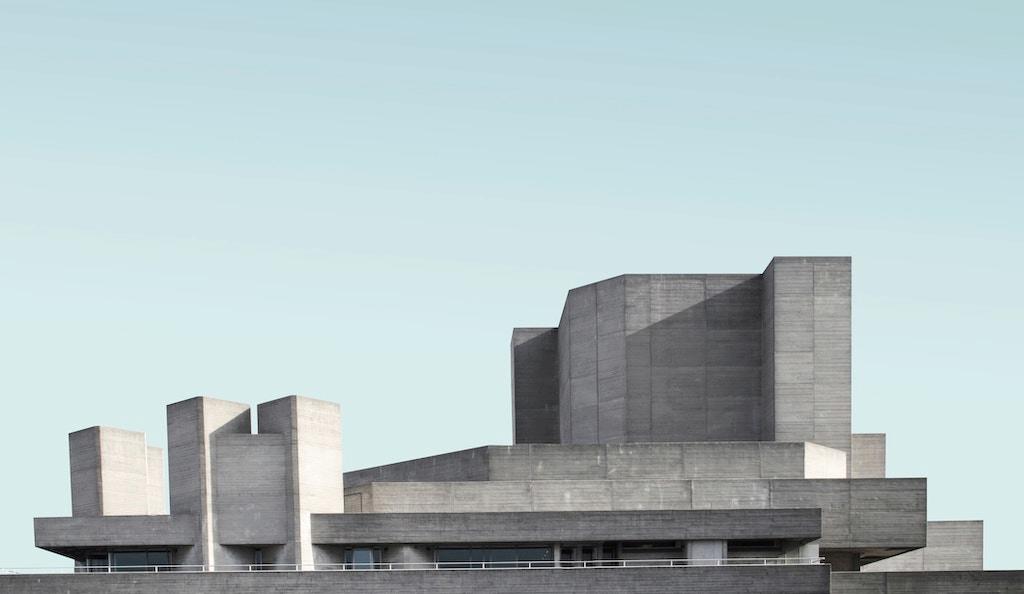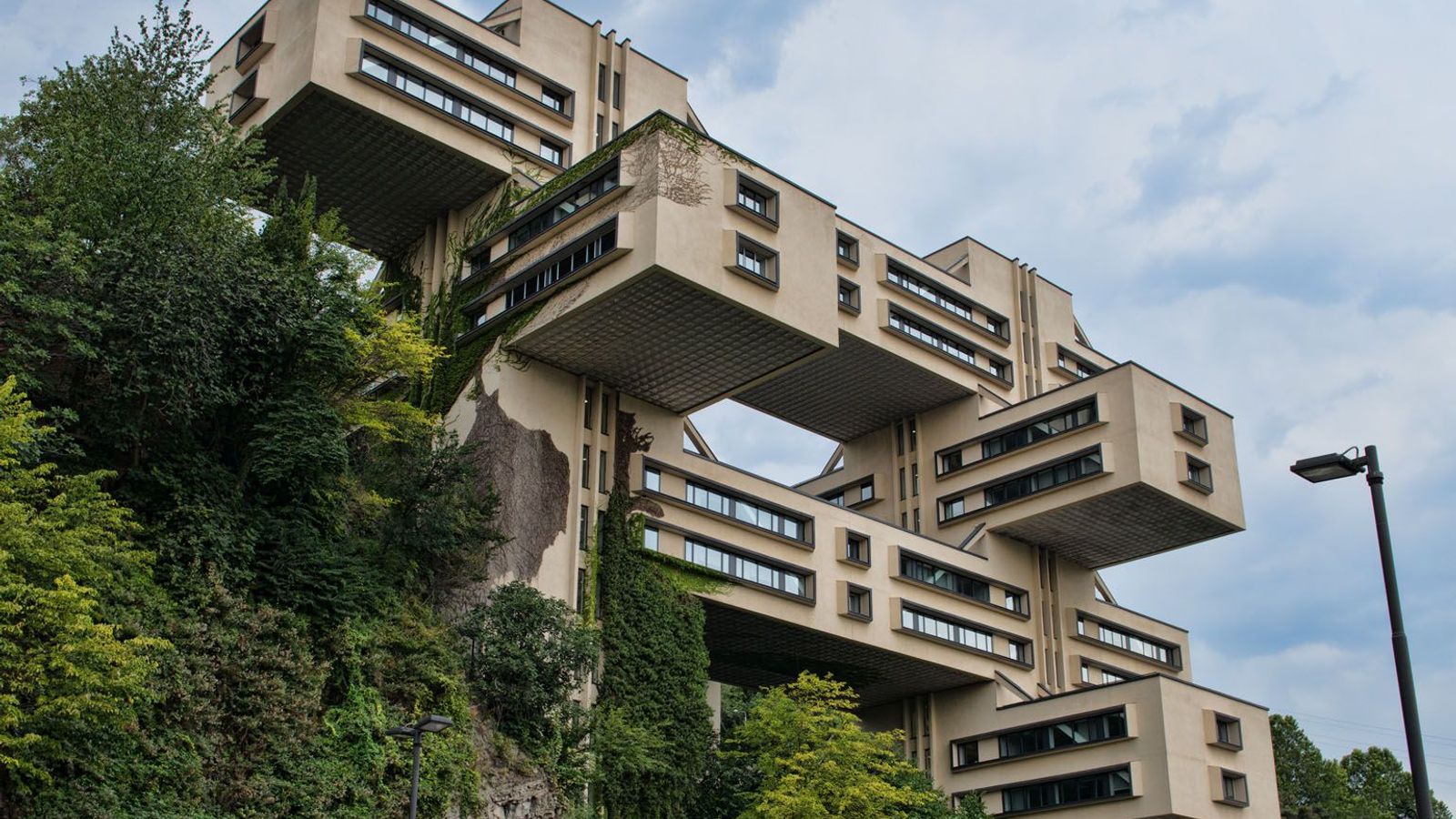Table Of Content

This deliberate choice of raw and unfinished materials serves as a testament to the values of honesty and practicality inherent in brutalist design. Picture uncomplicated, block-like structures that repeat in expansive complexes, creating a visually rhythmic and harmonious environment. Brutalist design often incorporates strong geometric shapes, such as angular forms and sharp edges. Angular furniture and shapes create a cohesive, organised environment, accentuating the overall structured feel of the space. Integrate geometric shapes through furniture choices, such as angular sofas or tables. Use rugs with geometric patterns, and consider wall art or sculptures that follow geometric lines.
Share this article

Twenty-first-century interiors in the brutalist style are authentic, pure, and simple. They may spurn ornamentation, but the forms are striking, the materials have textural appeal, the color palette is calming, the layouts are comfortably uncluttered, and the furniture is functional, practical, and durable. Designers Mark Cutler and Nichole Schulze come to cutlerschulze with a combined 40 years of experience in creating dynamic residential and commercial spaces. With projects globally, cutlerschulze creates designs that are familiar, timeless, and effortlessly chic. Founded by the exquisite interior designer Robyn Jensen, Jensen Interior Design is a treasured name on our list of top interior designers in LA.
Brutalist Interior Design Ideas (With Pictures)
Opt for multi-purpose pieces like sofa beds or ottomans with hidden storage to maximise space efficiency. "Funny enough, it has nothing to do with the criticism of the style as being "brutal," Rogers says, adding that brutalism derives from the French phrase béton brut, which translates as "raw concrete." The minimalist elements in a brutalist space are designed to captivate our senses. The intentional absence of attention-grabbing elements invites every user to find solace and foster deep introspection within oneself. Striking a chord to balance the dominating monochrome palette – warm wood tones, soft cream fabrics, black metal finishes, as well as polished stone, chrome, and brass inlays, come together to weave a subtle harmony. Also, the incorporation of curved and chamfered edges, in the geometry of interior elements, amiably contrasts the bold structural exaggerations.
A Vision For A Beautiful Home Design That Exudes An Ethereal Charm SPACESTRY
AD archives: Inside 10 of the most stunning brutalist homes - Architectural Digest India
AD archives: Inside 10 of the most stunning brutalist homes.
Posted: Tue, 24 Oct 2023 07:00:00 GMT [source]
As a result, design trends shifted in the opposite direction, giving rise to the return of the shabby chic and cottage styles. While Brutalism’s return to the design scene was short-lived for now, it remains a prominent landmark in American design. Some negative associations towards Brutalism may have come from the fact that most soviet era government housing and buildings were constructed in the Brutalist style. However, that didn’t stop the movement from traveling to Cold War era America during the Red Scare.
Amber Interiors
The design was crafted to represent the building’s internal function on the exterior through its rugged concrete volumes. Introduce bold accents through statement furniture pieces, vibrant upholstery, or colourful decor. Art plays a significant role in Brutalist interiors, with large-scale sculptures or paintings adding visual interest and serving as focal points. Consider gallery-style walls or dedicated art spaces to emphasise the importance of art in the design. From working on a number of home, design and property publications and websites, including Grand Designs, ICON and specialist kitchen and bathroom magazines, Hugh has developed a passion for modern architecture, impactful interiors and green homes. He’s just finished a kitchen and garden renovation, and has eyes set on a bathroom makeover for 2024.
Subscribe to our newsletter and discover why with us, Love Happens
He drew inspiration from the term “beton brut” used by French painter Le Corbusier. The bold, unapologetic style departs from the traditional, sleek, and polished look that has dominated interior design for so long. However, its clean lines and stark simplicity can sometimes feel cold and sterile.
Characteristics of Brutalist Interior Design
"It kept it," says Rodgers, expanding beyond England and France into the United States and beyond, "until it began to go out of fashion in the '70s." There's often a sense when looking at Brutalist homes that the furniture is secondary – somehow deferring to the often scene-stealing concrete forms of the building. However, a good interior design scheme in a Brutalist home can enhance, without necessarily having to prescribe to a minimalist style. Both industrial and brutalist interiors share notions of raw materials and unfinished aesthetic, yet they distinguish in their expression, inspiration, and execution. There are no stylised patterns, no decorative finishes, no polished surfaces, nor laboured carvings—brutalism glorifies every element for its purity and simplicity.
The external appearance of a structure is shaped by its internal functions, fostering a seamless integration of form and function. The aesthetics of brutalist structures contribute to their imposing presence, conveying a sense of strength and solidity. In line with the philosophy of functionality, Brutalist interiors often incorporate multifunctional furniture or built-in storage solutions.
Fala Atelier transforms Porto warehouse into "house of many faces"
Instead of focusing on lavish finishes, the Brutalist style keeps things minimalistic by letting the organic shapes shine through stripped-down materials. As the movement gained momentum from the 1950s to 1970s, some found the style to be austere and menacing because of the harsh plainness the design imposes. The allure of beautiful buildings with Brutalist-style architecture or materials can be great, but there's still this desire to create a home that feels, well, homely. Salvaged factory windows can be used as room dividers or antique industrial machinery parts can become sculptural decor pieces with historical significance. Old workbenches featuring sturdy wooden tops and metal bases can be repurposed as kitchen islands, dining tables, or writing desks. Béton Brut, a term coined by the legendary Swiss architect Le Corbusier, is a French phrase that translates to ‘unfinished’ or ‘raw concrete’.
Of the many products that British designer Faye Toogood unveiled in Milan, the most provocative was a range of rugs she unveiled with Italian brand CC-Tapis in her Rude Arts Club exhibition. Danish brand Mater has become known for its patented material, Matek, which combines waste plastic with biomaterials such as sawdust and coffee bean shells. A few stood out for how they addressed sustainability challenges, with newly developed materials and innovative assembly methods resulting in products with a reduced carbon footprint. "Perched high up amongst the alpine hills, the winding journey through Austria and Italy made the visit to this church evermore special.
“There’s something to be said about the zeitgeist of brutalism’s heyday—there was this heightened aspiration for the future and collective optimism around what that might look like,” he tells Vogue. In the bathrooms, stripy pink-and-black tiled walls and pops of pale mint green give the room a fun, playful feel. Debaixo do Bloco's design for this sculptural house in Brazil is divided into three sections to provide a clear distinction between the various programmes. This flat in the Shakespeare Tower of London's brutalist Barbican estate was overhauled by Takero Shimakazi Architects in a nod to the client's strong ties to Japan.
Kaiyo also plants a tree for every order made, giving back to the environment that gave us the materials to make these beautiful, unique furniture pieces. The cultural movement known as brutalism in architecture exploded in the 1950s, cementing its status as an admired yet controversial artistic style. This trend stuck around until the 1970s, when public opinions of this design started shifting. Functional transparency is a guiding principle, with buildings intentionally visibly expressing their purpose.
This architectural movement emphasized functionalism in design and utilized industrial materials such as steel beams and reinforced concrete. One key aspect of Brutalist interior design is its emphasis on functionality over form. Some spaces warrant accenting with sculptural light fixtures, artfully spotlighting brutalism furnishings in the round. Others may only require outfitting existing hardware with LED bulbs or adding adjustable machine-age lamps while using minimal energy. Pay homage to brutalism’s functional roots by salvaging industrial and architectural antiques whenever possible. Rather than hiding infrastructure, thoughtfully expose preexisting columns, pipes, vents, or cables.

No comments:
Post a Comment